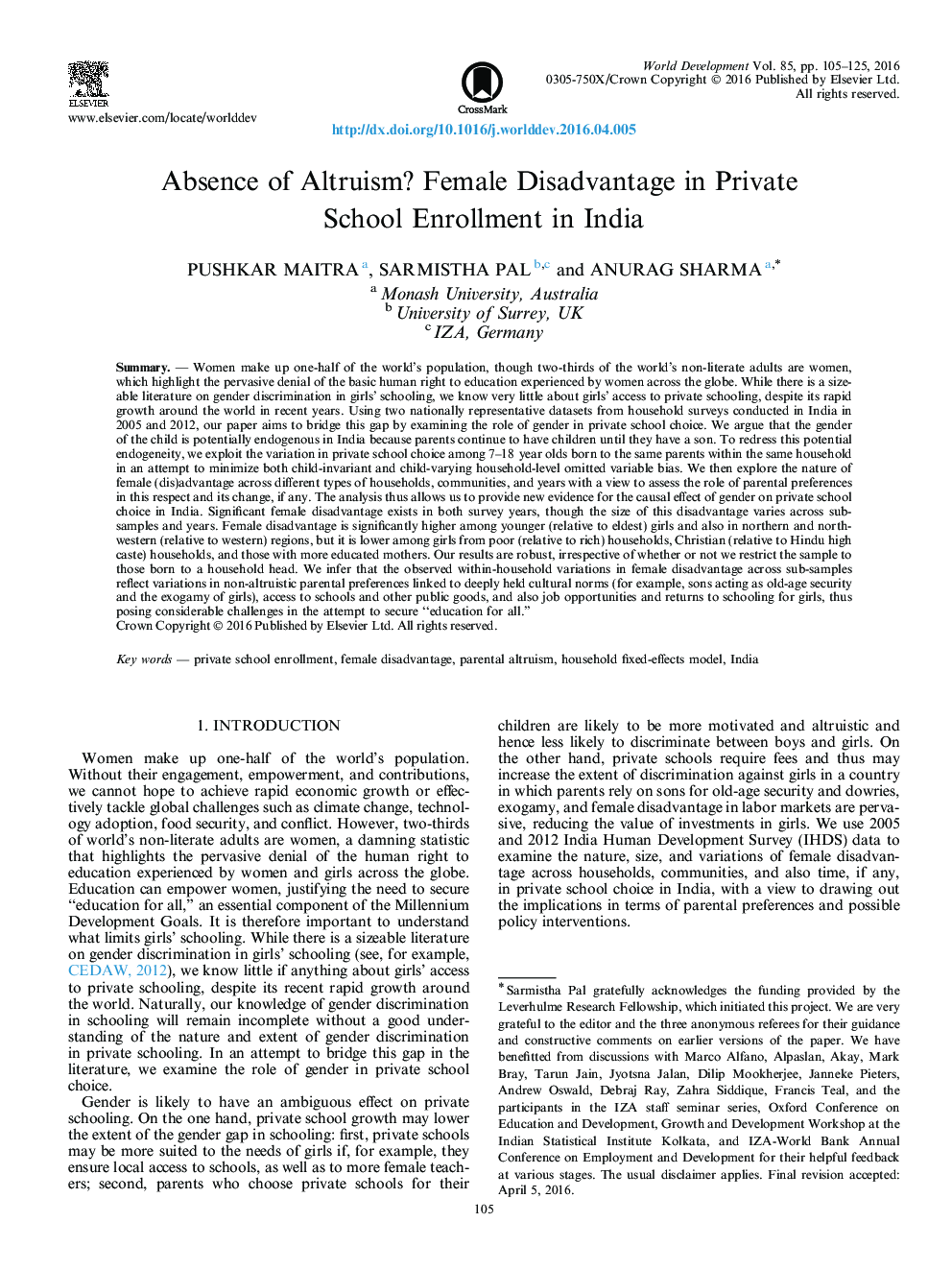| کد مقاله | کد نشریه | سال انتشار | مقاله انگلیسی | نسخه تمام متن |
|---|---|---|---|---|
| 990562 | 1481133 | 2016 | 21 صفحه PDF | دانلود رایگان |
• The present paper examines the effect of gender on private school enrollment in India.
• We use 2005 and 2012 IHDS data for 7–18 year olds born to household heads.
• We use household fixed effects model to redress the endogeneity of gender.
• We find significant female disadvantage, but its size varies across sub-samples and years.
• Use of household fixed effects estimates enables us to derive non-altruistic parental preferences.
SummaryWomen make up one-half of the world’s population, though two-thirds of the world’s non-literate adults are women, which highlight the pervasive denial of the basic human right to education experienced by women across the globe. While there is a sizeable literature on gender discrimination in girls’ schooling, we know very little about girls’ access to private schooling, despite its rapid growth around the world in recent years. Using two nationally representative datasets from household surveys conducted in India in 2005 and 2012, our paper aims to bridge this gap by examining the role of gender in private school choice. We argue that the gender of the child is potentially endogenous in India because parents continue to have children until they have a son. To redress this potential endogeneity, we exploit the variation in private school choice among 7–18 year olds born to the same parents within the same household in an attempt to minimize both child-invariant and child-varying household-level omitted variable bias. We then explore the nature of female (dis)advantage across different types of households, communities, and years with a view to assess the role of parental preferences in this respect and its change, if any. The analysis thus allows us to provide new evidence for the causal effect of gender on private school choice in India. Significant female disadvantage exists in both survey years, though the size of this disadvantage varies across sub-samples and years. Female disadvantage is significantly higher among younger (relative to eldest) girls and also in northern and northwestern (relative to western) regions, but it is lower among girls from poor (relative to rich) households, Christian (relative to Hindu high caste) households, and those with more educated mothers. Our results are robust, irrespective of whether or not we restrict the sample to those born to a household head. We infer that the observed within-household variations in female disadvantage across sub-samples reflect variations in non-altruistic parental preferences linked to deeply held cultural norms (for example, sons acting as old-age security and the exogamy of girls), access to schools and other public goods, and also job opportunities and returns to schooling for girls, thus posing considerable challenges in the attempt to secure “education for all.”
Journal: World Development - Volume 85, September 2016, Pages 105–125
